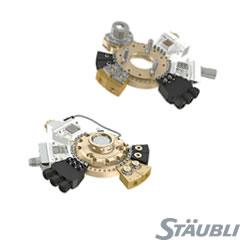Point Cloud Library and Toyota Code Sprint 2011
PCL Code Sprints are intended to rapidly advance the capabilities of the Point Cloud Library in a certain area/subject by offering stipends to talented student developers and pairing them with knowledgeable mentors for several months of accelerated software development.
PCL Code Sprints are intended to rapidly advance the capabilities of the Point Cloud Library in a certain area/subject by offering stipends to talented student developers and pairing them with knowledgeable mentors for several months of accelerated software development. These sprints have been inspired by the Google Summer Of Code (GSOC) initiative, and we will be following the same basic model. Projects will run for an initial period of 3 months with the same structure and performance evaluations as the GSOC program, and all of the code produced will be open source.
For this fall's PCL-Toyota Code Sprint, we have identified the following important areas for further development in PCL, and we are therefore searching for outstanding candidates (and mentors) to work on the following projects:
Surface reconstruction and point cloud smoothing
Accurate surface reconstruction and point cloud smoothing have been demonstrated in specific test environments with minimal clutter and when the object of interest fills most of the field of view. However, additional algorithms are needed when performing surface reconstruction and/or point cloud smoothing in a cluttered space. In this project, students will work to develop algorithms capable of smoothing noisy point clouds and reconstructing surfaces of objects so that they can be compared against a collection of known 3D objected models. The algorithms developed must be able to operate in a cluttered home or health-care environment, and they must be tolerant of noisy point cloud data (such as those acquired by sensors like the Microsoft Kinect). This project will also investigate the reliability and accuracy of different surface reconstruction techniques when data is acquired from a moving sensor.
CPU and GPU optimizations
CPU and GPU optimizations for real-time global point cloud localization
In this project, students will work to develop CPU and GPU optimizations to enable real-time 3D place recognition. Existing algorithms are able to process a point cloud containing a partial view of an environment and subsequently localize it within a previously captured 3D map of the complete environment. However, this task is very computationally expensive, and many improvements are needed to make these approaches practical for real world uses. The goal of this project is to develop highly optimized implementations of a number of general purpose search and feature extraction algorithms that can be used in a variety of applications.
CPU and GPU optimizations for real-time 3D segmentation and boundary extraction
With image segmentation, being able to perform multiple levels of segmentation on a single image is becoming more common to aid in recognition tasks. For instance, it is common to use coarse segmentation initially to identify regions of interest and then use a finer segmentation for boundary detection of individual objects in the scene. In this project, the student will develop real-time algorithms for segmenting 3D images, using CPU and GPU optimizations so that multiple levels of segmentation be computed quickly.
The above projects will run for a period of 3 months divided into two terms. Each student developer will receive a stipend of $5000 for their contributions, subject to satisfactory mid-term and final evaluations.
Potential candidates should submit the following information to pcl-tocs@pointclouds.org:
- brief resume
- list of existing PCL contributions (if any)
- list of projects (emphasis on open source projects please) that they contributed to in the past
Advanced C++ programming skills are required for all projects. Please remember that this is a unique opportunity to work with some of the world's best 3D perception researchers!
Interested mentors should send a brief e-mail to the address mentioned above pointing out their time commitments and expertise in the field.
Featured Product

